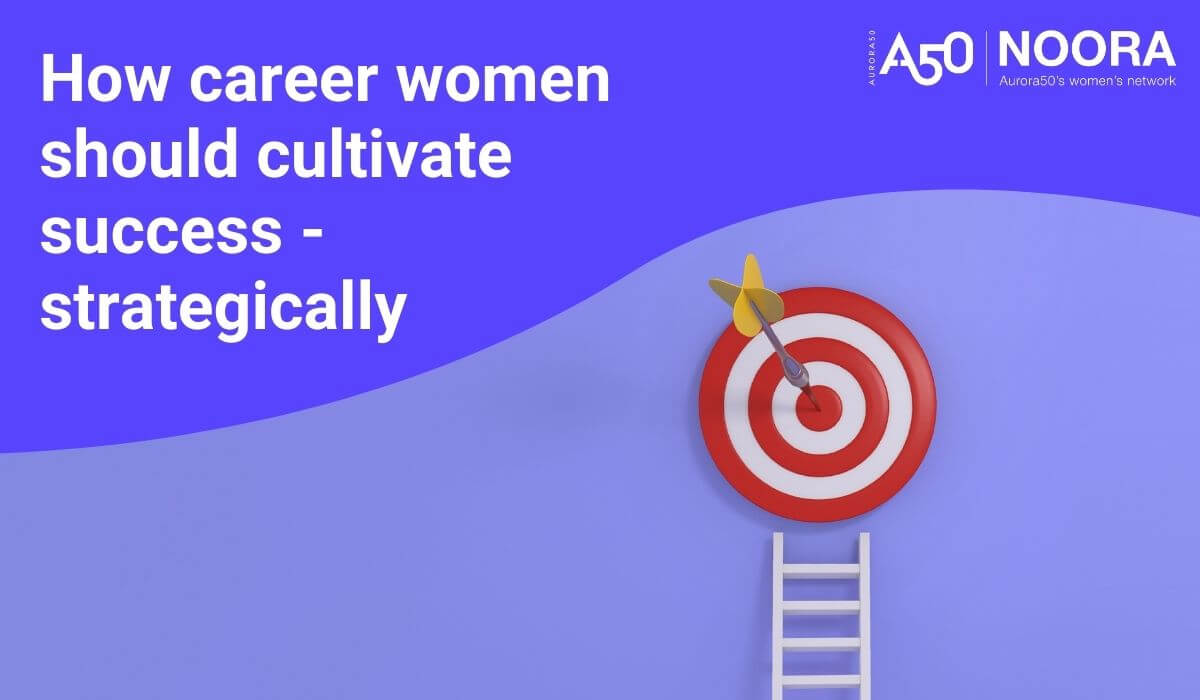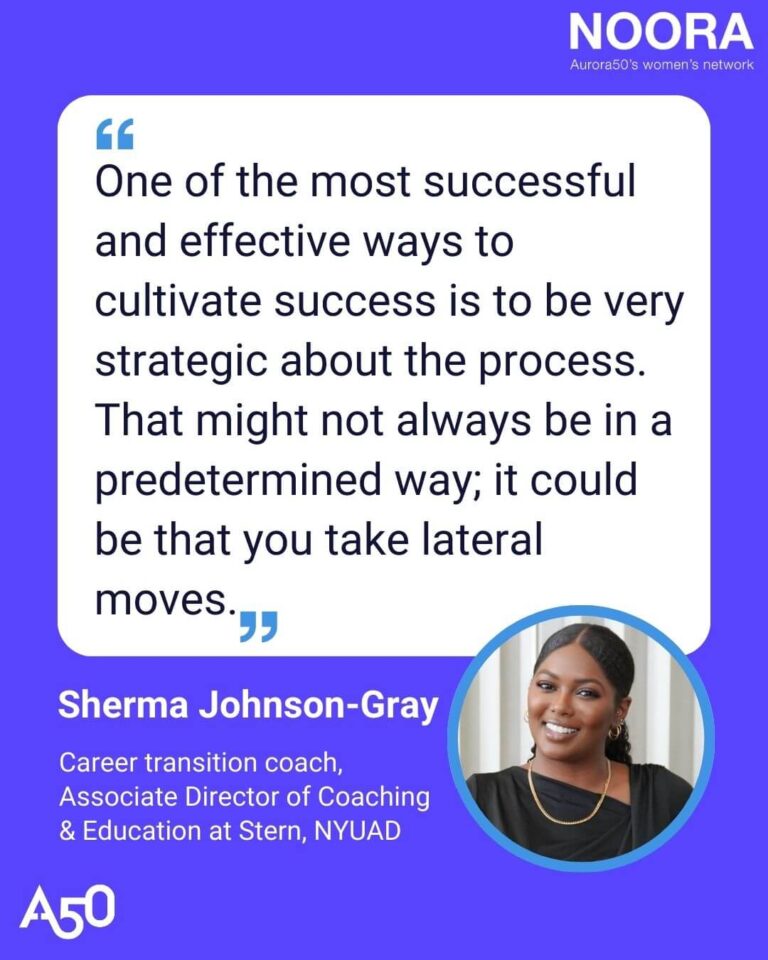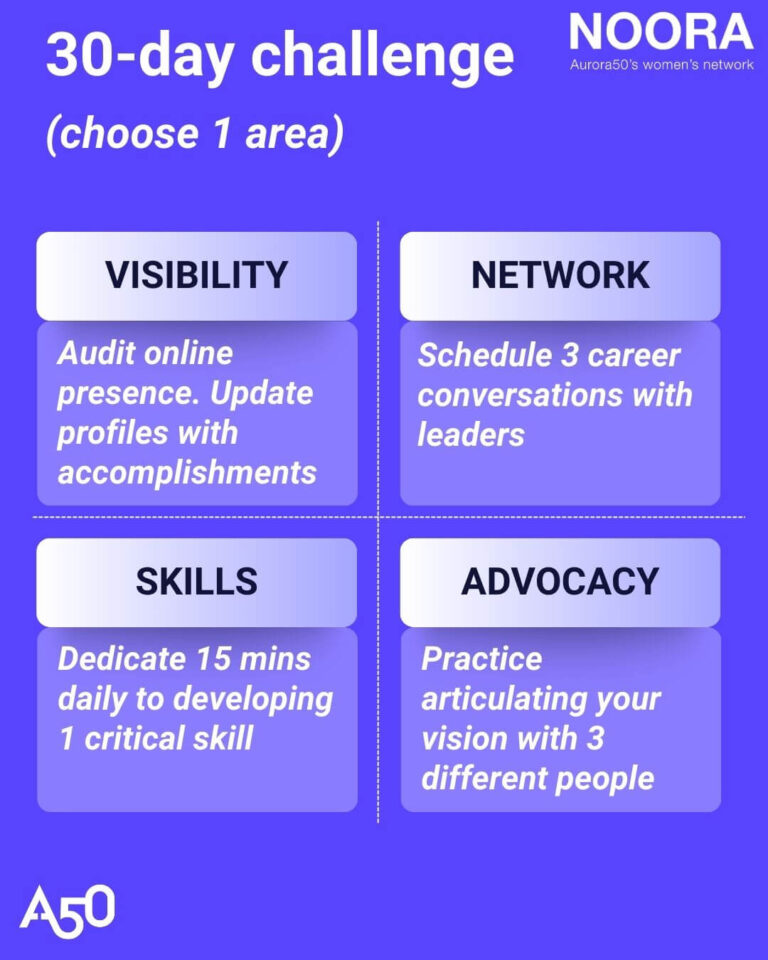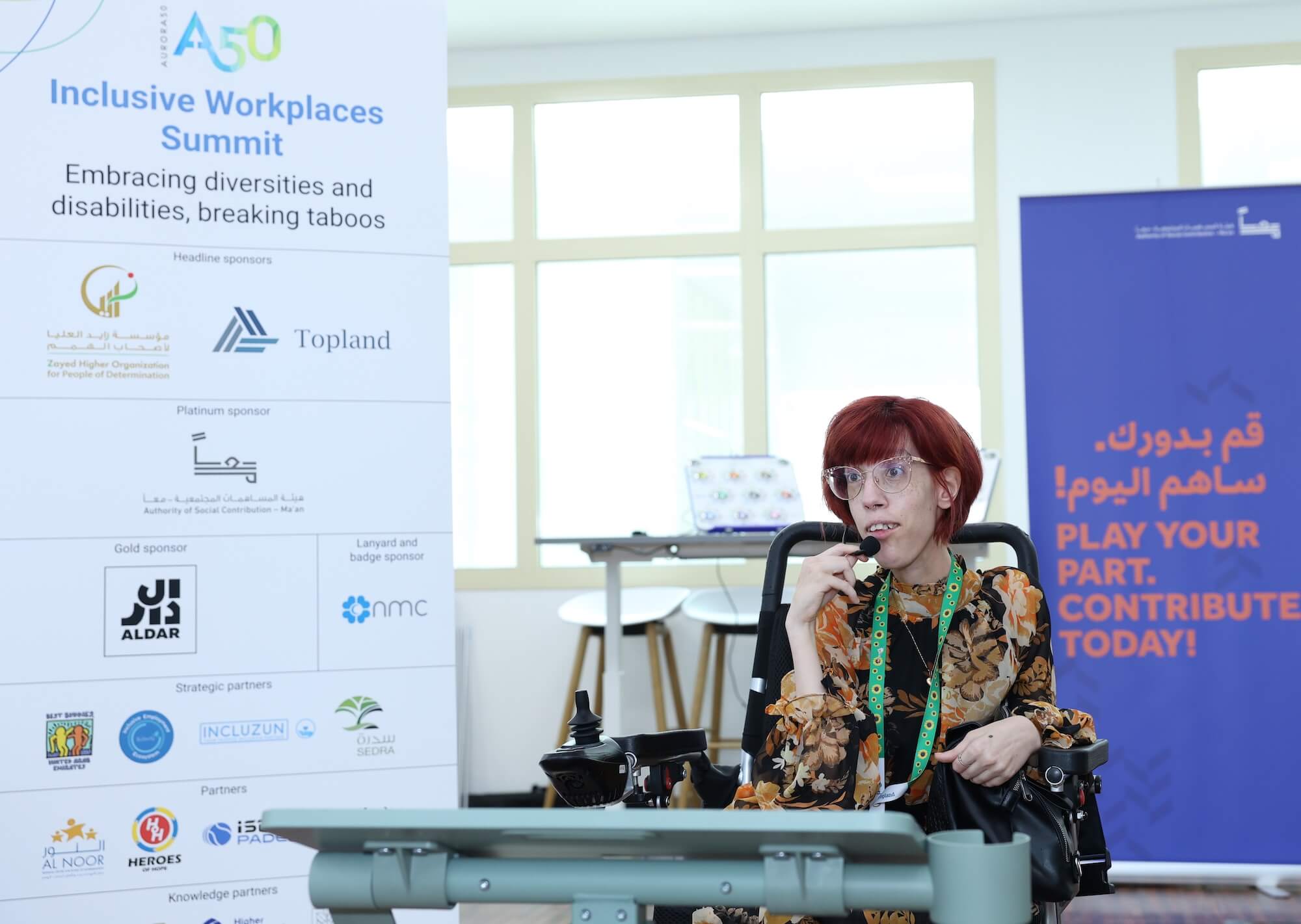





Sherma Johnson-Gray is a career transition coach and the Associate Director of Coaching and Education at the Stern School of Business at New York University Abu Dhabi (NYUAD).
Speaking to members of Aurora50’s NOORA membership community, she advised them to become the “author” of their career as she outlined common barriers and strategies relevant to the three main career stages – early career, mid-career and senior leadership.
We can all feel trapped in a “ladder-climbing mindset”, Ms Johnson-Gray says. She recommends applying Self-determination Theory (SDT) to “cultivate success” strategically – by building competence, autonomy and connection – to reframe climbing the ladder as “expanding influence”.
She recommends women build their own ‘confidence community’ of individuals who help them build “authentic confidence”.
“Make use of this group because this is a fantastic space,” she says of NOORA. “Having the people in this room going through this journey with you is invaluable. I’m always so impressed by every single person that I meet on the NOORA programme.”

When we face barriers, we can feel a knock to our confidence, because we are taught to look at outside validation or ‘extrinsic’ motivators and rewards to keep us going. We can feel trapped in a “ladder-climbing mindset”.
But it could be that you take lateral moves, to expand and showcase – to widen yourself. What you need is predefined points and an ultimate goal, but there may be more than one way to get to that final place.
A: Career progression can be broadly categorised into three stages:
You’re building credibility wile developing leadership style.
You tend to be advancing now while balancing competing priorities.
At this stage, you are scaling influence and overcoming isolation.
![Blog post graphic shows Aurora50 and NOORA logos with strapline Aurora50's women's network and the text 'Career stages, barriers and strategy'. Table in graphic has three columns with headers 'Early career', 'Mid-career' and 'Senior leadership' with icons for each (an arrow going up a staircase, an org chart of three people with a cog in the middle and an arrow in a target). 1. Early career (0-5 years) You’re building credibility wile developing leadership style. • Common barriers: Being overlooked for stretch assignments, struggling to be heard in meetings. • Strategy: Prepare effectively for opportunities, seek strategic allies and document achievements to showcase competence. 2. Mid-career (5-15 years): You tend to be advancing now while balancing competing priorities. • Common barriers: ‘Sticky floor syndrome’ (over-delivering without recognition), career plateaus and balancing team/ business priorities with personal growth. • Strategy: Set value-based boundaries and build influence. 3. Senior leadership (15+ years): At this stage, you are scaling influence and overcoming isolation. • Common barriers: Isolation at the top and executive presence expectations. • Strategy: Develop an authentic leadership style and join peer mentoring circles [like NOORA].](https://aurora50.com/wp-content/uploads/2025/05/2025_05_30_-blog-How-career-women-should-cultivate-success-strategically-career-stages-1-768x960.jpg)
A: The ‘sticky floor syndrome’ – invisible, extra responsibilities that consume time, but don’t lead to advancement – occurs when women over-deliver but aren’t recognised or promoted. We think someone else will notice. To combat this:
Being visible and believing you will do it well is what will elevate you.
A: If you shift mindset from climbing the ladder to ‘expanding influence’, this can help you build authentic confidence – a genuine sense of competence and internal validation, rather than relying on external validation and authority. This can help elevate us – and is particularly helpful in mid-career.
Confidence in your career stems from satisfying three fundamental psychological needs – competence, autonomy and relatedness (connection) – according to Self-determination Theory.
Key strategies:
A: Having dedicated people on your side to support you throughout this process is essential. This network forms your ‘confidence community’, individuals who help you build authentic confidence by:
Some examples of people you may want in your confidence community…
A: Clear communication is key. Use this framework:
Example:
“I’m aiming to move into a role where I can influence organisational strategy. Right now, I’m building my data analytics skills. Your experience in this area would be invaluable – could we schedule a chat?”

A: I have a 30-day challenge just for you! Focus on one of these areas:
Your career is a strategic journey, not a straight ladder. You will build confidence with deliberate practice and evidence. Clear communication of your ambitions will increase the opportunities that present themselves to you.
Small, consistent actions create momentum! Spread your wings and the wind will come to lift you.
Find out more about Sherma Johnson-Gray’s work helping professionals navigate career transitions, international relocations and leadership development at https://www.ccsherma.com/.
NOORA is the Aurora50 community for talented and ambitious corporate women in the GCC who lead with impact. You can purchase a corporate package or buy membership as an individual. Find out more at aurora50.com/noora.

ADNOC’s pathway to gender balance by Thuraya Al Maskari

Noura Farag, Learning & Development Administrator at Conrad Abu Dhabi, shares her journey to a meaningful career and making a difference in the workplace as a person of determination.

Women hold 5.2% of board seats at the 752 listed GCC companies, according to the 2024 index by Aurora50 and Heriot-Watt University.

